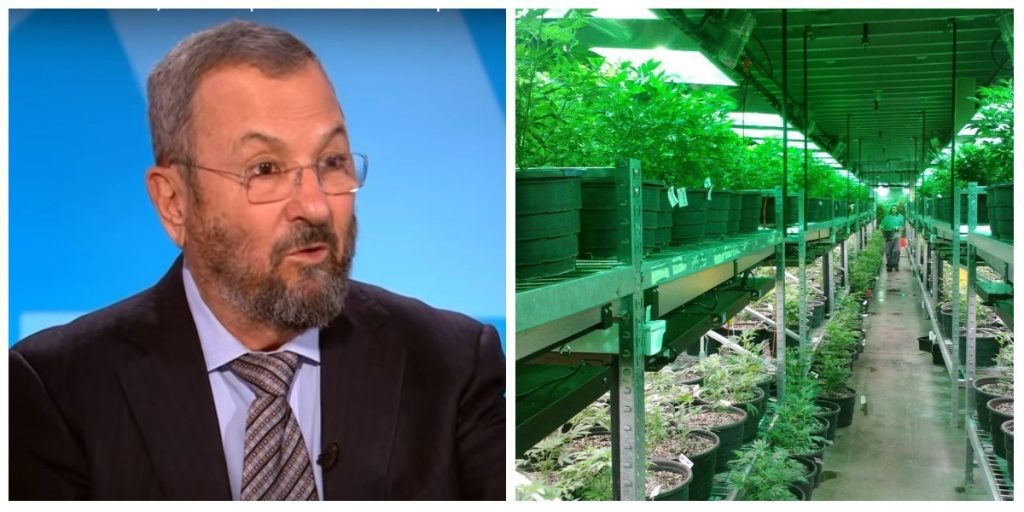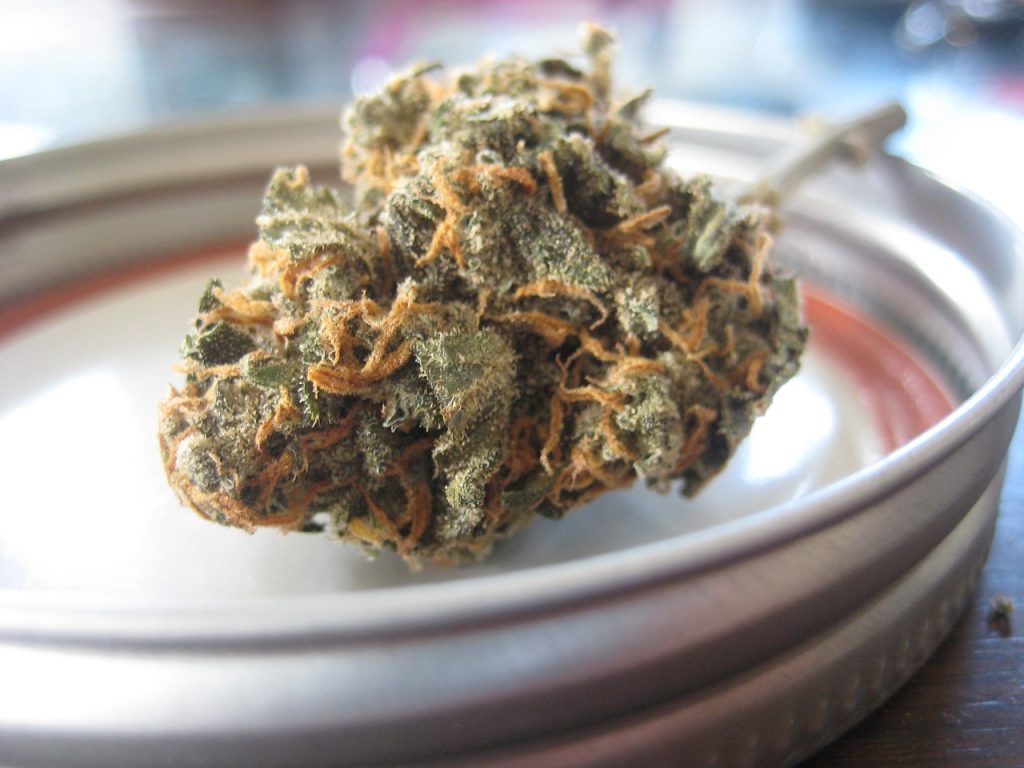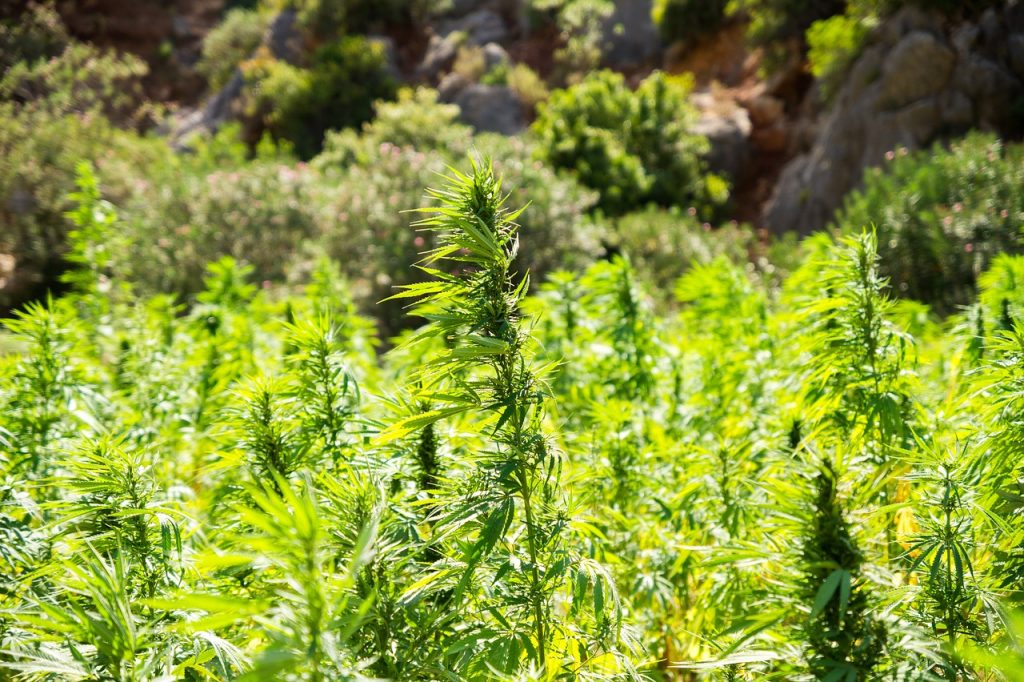Former Israeli prime minister Ehud Barak has been quite busy since leaving the government.
The most highly decorated Israeli soldier and the IDF’s longest-serving chief of staff who went on to become prime minister in 1999 until 2001 and the defense minister and deputy PM in Benjamin Netanyahu’s government from 2009 to 2013, is said to have amassed wealth worth some $10-$15 million, due largely to real estate investments and consulting services.
He’s also had a hand in Israel’s vibrant tech ecosystem in recent years, investing, founding, and chairing a number of startups in the sphere of cybersecurity, rescue technology, and biometrics.
His latest venture is a bit different.
This week, the Israeli medical technology company InterCure, which is set to become Canndoc Pharma after acquiring medical cannabis firm Canndoc, announced that Barak would come on as chairman of the board.
SEE ALSO: Aiming High: Israel Expects To Export $1 Billion Worth Of Medical Cannabis Annually
Canndoc was founded in 2008 to become a producer and developer of medical cannabis products, one of the few such companies operating with a license from the Israeli Ministry of Health to market its offering to consumers. Its acquisition by InterCure, known for investing in medical and biotech companies, was announced earlier this month.
The acquisition will now place InterCure/Canndoc Pharma as the only company on the Tel Aviv Stock Exchange that holds a permanent license covering the entire medical cannabis value chain, according to a company statement.
Barak said that he was “happy to be joining the company’s senior management,” adding that “medical cannabis has proven its potential to help and improve the lives of many patients across the world.”
Key Western countries, he said, have adopted medical cannabis as a recognized treatment course. InterCure/Canndoc Pharma is “well poised to break into these markets,” and Barak says he intends to “lead the company’s international growth strategy and to take an active part in its business development with the aim of turning Canndoc Pharma into a global leader in its field.”
Under the terms of the agreement between Barak and the company, he will receive a monthly salary of $10,000 for 40 hours of work, and will be eligible for options plan amounting to 5 percent of the company at an average price of NIS 3.20 per share, which represents a premium of some 60 percent on InterCure’s current share price.
InterCure/Canndoc Pharma said in a statement that the compensation package for Barak demonstrated “great confidence” in his leadership and in the company’s future.
Canndoc CEO Roy Zarahiya said the company “proudly and warmly welcomes Barak’s appointment as chairman of the board.”
The company, he said, was certain “Barak’s abilities and his international connections would be beneficial to the management in realizing its vision of becoming a world leader in the medical cannabis industry.”
Barak has already brought his abilities to several ventures. In 2015, he joined the board of FST Biometrics, an Israeli company that specializes in biometric identification technology, as a representative of GMF Capital, which invested $15 million in the company at the time.
That same year, Barak provided $1.5 million in seed funding to public safety technology startup Carbyne, previously known as Reporty, where he also serves as chairman of the board. Carbyne recently raised $15 million in a Series B funding round.
Barak also co-founded Israeli cybersecurity firm Toka, which came out of stealth mode this year to announce that it raised $12.5 million in a seed round from a number of high-profile investors including Dell Technologies Capital.
Sign up for our free weekly newsletter
SubscribeToka’s tech helps government agencies “transform their cyber defenses,” and creates spy tools and software for clients to help fight national security threats. Toka is heavily focused on IoT devices, such as Amazon Echo, Alexa smart alarms and others.
InterCure/Canndoc Pharma is Barak’s first known venture into the medical cannabis field, which is growing but witnessing some setbacks.
The development also comes as there is talk of a political comeback for Barak, who has been a harsh critic of Netanyahu and his government. He’s called on the prime minister to resign a number of times amid graft investigations against him. Earlier this month, he compared the Netanyahu government to that of Romanian communist dictator Nicolae Ceausescu.
A cannabis industry in wait
In 2016, Israel approved reforms that would ease restrictions on medical cannabis, including a plan to increase the number of cannabis farms and allow exports, which according to government research at the time is set to bring in an estimated $1 billion in revenue per year.
It is set to position Israel as a top medical cannabis exporter, but the industry has been waiting for almost a year now for the government to give its final approval for the legalization of medical cannabis exports.
In February, Netanyahu suspended export plans amid opposition by the Ministry of Public Security headed by Gilad Erdan which said it was afraid plants grown for exports would spill over into the recreational market and demanded some NIS 200 million to its budget to help secure facilities. A reported conversation with US President Donald Trump, whose administration is taking a hard line against cannabis including its medical use, was also said to be the cause of the sudden export freeze.
The suspension raised the ire of medical cannabis farmers, entrepreneurs, and investors who poured hundreds of thousands of shekels into the industry and who threatened legal action, while others began eyeing opportunities abroad. Since the government announced the reforms in 2016, some 400 Israeli farmers applied for permits to grow cannabis, the Israeli Health Ministry said in December, adding that 242 had received preliminary approval by December 2017. The ministry also said it received some 200 applications for cannabis nurseries seeking to distribute cannabis plants, 95 requests to set up cannabis pharmacies, 60 applications for processing facilities, and 44 requests to set up stores selling cannabis products.
In April, the government announced that it has come up with a revised plan to allocate a budget to Erdan’s Ministry of Public Security for 25 police officers to monitor cannabis growers and operations, and limit the initial operations of cannabis farms to 50, well below the 242 farmers who received initial approval.
But the plan has satisfied few in the industry, and the wait continues.
SEE ALSO: With Government Vote On Exports In The Balance, Medical Cannabis Industry Stuck Waiting To Exhale
Saul Kaye, founder and CEO of cannabis tech startup accelerator iCan, which hosts the annual CannaTech conference in Tel Aviv, told NoCamels earlier this year that Israel can become the leading global export nation of medical cannabis, where “Cannabis will become as important to Israel’s economy as high-tech.”
“Israel is perfectly positioned to enter and disrupt the medical cannabis market that is expected to soar to $33 billion dollars worldwide in the next five years. Israel, already the most advanced nation on earth in cannabis R&D will now be able to produce and market cannabis base products that will help millions of people suffering from numerous illnesses and afflictions such as cancer, MS, Parkinson’s, sleep disorders, epilepsy, and PTSD, to name just a few,” he said.
Indeed, Israel has been home to groundbreaking R&D in the medical cannabis field. Israeli researchers have already used cannabis to make great headway in medicine and healthcare, using it to attempt to kill cancer cells, treat traumatic brain injuries, possibly treat autism, and provide pain relief.
This is all done with strong encouragement from the Israeli government, which also invests in the industry. In 2017, the Israeli government said it would invest $2.13 million in 13 research projects on cannabis, making Israel one of three countries with a government-sponsored cannabis program. Israel is also one of the few countries where medical cannabis is allowed to be tested on human beings in clinical trials.
Related posts

Editors’ & Readers’ Choice: 10 Favorite NoCamels Articles

Forward Facing: What Does The Future Hold For Israeli High-Tech?

Impact Innovation: Israeli Startups That Could Shape Our Future






Facebook comments